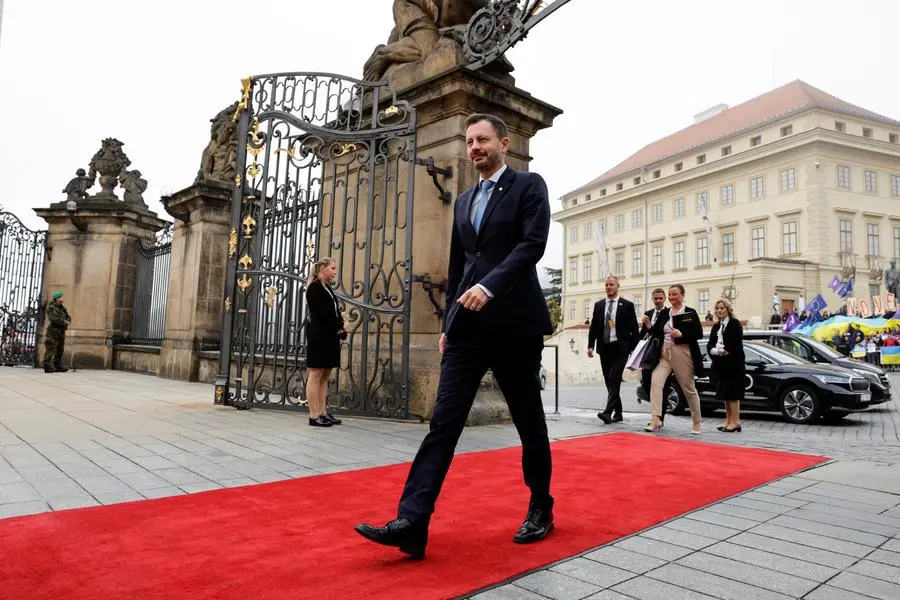PHOTO
Slovakia's minority government approved on Friday a 2023 draft budget with a higher deficit target of 6.44% of GDP due to Europe's energy crisis, it said on its website, ahead of an expected showdown to get its plan through parliament.
The plan envisages the deficit rising from an estimated 2022 gap of 4.97% of gross domestic product (GDP), with the inclusion of a 3.5 billion euro reserve for the government to help people suffering from soaring energy prices.
"It is a budget for the fight against the energy crisis," Prime Minister Eduard Heger said. "It is a budget to compensate people, firms, and also public institutions for high energy prices."
The centre-right government lost its parliamentary majority in September after a junior coalition party quit.
Heger said he believed parties would put aside politics to back a budget aimed at tackling the energy crisis.
Earlier this month, Finance Minister Igor Matovic, who heads the ruling coalition's strongest party, narrowly survived a vote in parliament to dismiss him, and risk of early elections hangs over the cabinet.
Failure to approve the 2023 budget in time would force Slovakia to start next year with a provisional budget, limiting the government's ability to spend on some initiatives.
The budget reserve planned for 2023 will help cover higher wages for teachers and other state workers, along with rises in pensions and family benefits, the Finance Ministry said in its budget draft.
Slovakia, like other European countries, is raising spending to ease the impact of soaring energy costs in the wake of Russia's invasion of Ukraine and Moscow's cut in Europe's gas supplies. (Reporting by Jason Hovet and Robert Muller in Prague Editing by Gareth Jones and Tomasz Janowski)





















